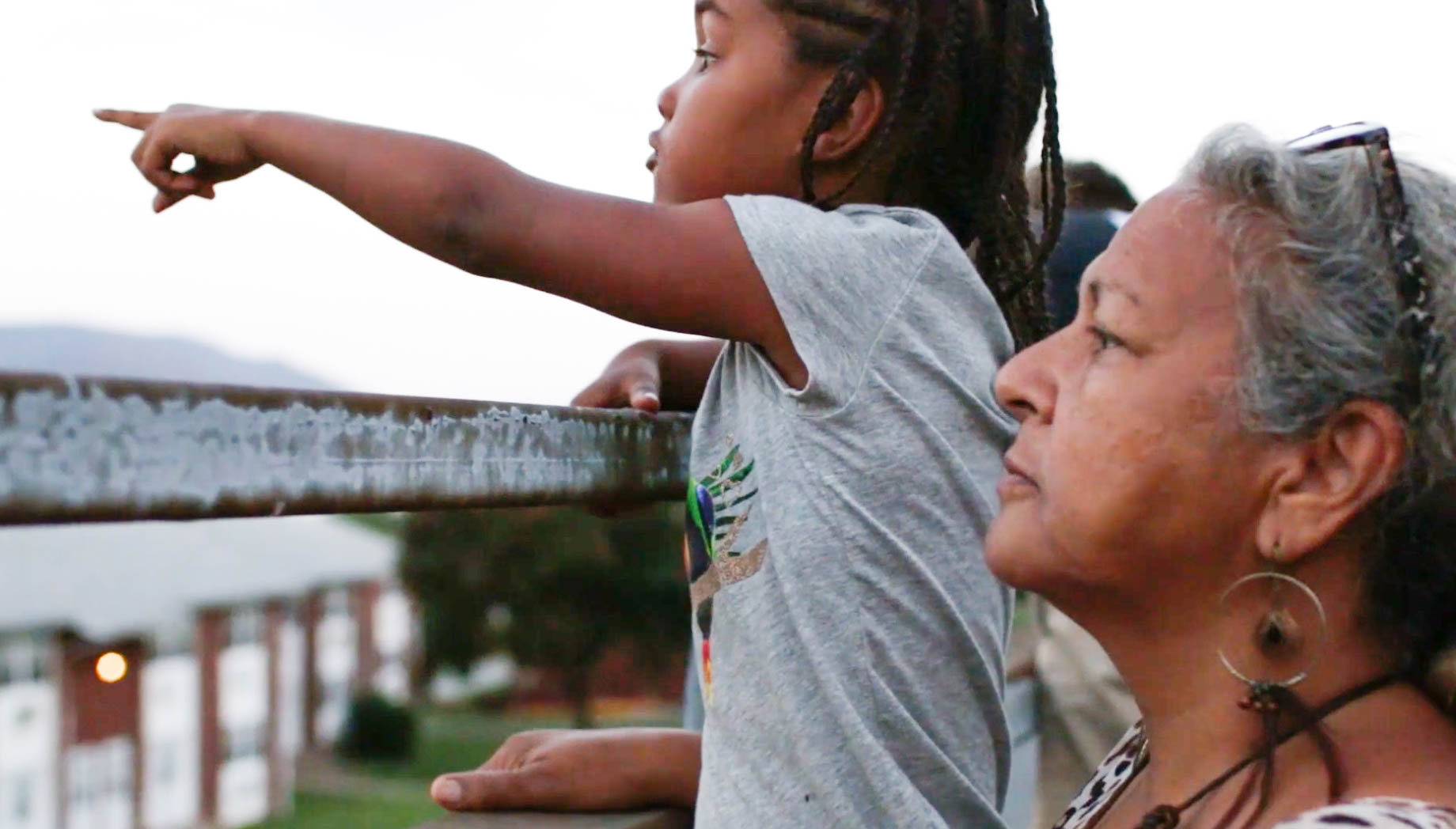
c/o “The Faces of Kinship Care”
On Monday, Sept. 18, University graduates Julie Magruder ’17 and Jackson DuMont ’17 returned to their alma mater for a screening of their recently released documentary, “The Faces of Kinship Care.”
Produced in association with the Child Welfare League of America and the New York State Kinship Navigator, the forty-two-minute film tells the stories of three kinship care families—families where other relatives, often grandparents and great-grandparents, adopt grandchildren whose parents are unable to care for them.
The film’s three families hail from different backgrounds, each headed by a woman: Wendy Nocar, Gloria Wood, and Cynthia Fountain.
“I’ve always been taking care of somebody,” Nocar said.
She was interviewed at her home, and the wall behind her was covered with children’s handprints and names in colorful paint. Other interviewees echoed her sentiment.
“It means a great deal to me to be able to help somebody,” Wood said.
The interviewees don’t shy away from the difficulties they’ve encountered. Fountain, a grandmother and four-time cancer survivor, spoke of attending court to try and gain custody while undergoing chemotherapy. Discussing her lifetime spent caring for others, Nocar alluded to both sacrifice and blessing.
The subject of kinship care is inherently intersectional, and the film honors that tendency, touching on the gendered nature of caretaking, race, culture, and issues of disability. Two of Fountain’s grandchildren were born with Duchenne Muscular Dystrophy. The state refused to provide Fountain with the necessary funding for the type of wheelchair her elder grandson, Miles, needed, and the ensuing medical complications resulted in Miles’ untimely death. The film showed the failure of the state to provide monetary support and to recognize and legitimize the emotional and physical labor undertaken by these women, whose days are spent caring and fighting for others.
“‘The Faces of Kinship Care’ is powerful because it’s respectful and empathetic,” Eli Sands ’18 said. “Even as it’s making an argument, it gets you to understand and care for the subject and their stories.”
Director of the NYS Kinship Navigator, Gerard Wallace, explained that while kinship families are the ideal situation for children without families to care for them, government resources have been limited. There are far more traditional kinship care families than formal foster care situations, but government spending and support aren’t proportionately allocated. Wallace isn’t advocating for funding reductions to the foster care system, but raises valid points—after all, kinship families need support for many of the same reasons as foster families.
All the interviewees spoke of the need for greater kinship care awareness: increased education both for Child Protective Services and other social workers, as well as for those grandparents and other relatives who would be willing to do kinship care if they knew how to.
“You must make yourself aware of what your rights are,” Fountain said.
While some laws exist that may make it easier for grandparents to gain or retain custody in contested situations, lack of information about these laws means they often go underutilized.
After the screening, Magruder and DuMont spoke about making the film and working with the CWLA, and discussed how the “Kinship” project changed the way they feel toward documentary. It’s a medium more familiar to Magruder, and one for which DuMont, who produced a horror short for his thesis, has found an unexpected fondness for.
“At this point in my life, I could not come up with stories as compelling as this,” DuMont said, who now plans to pursue more documentary work.
“It’s a lot of work,” Magruder said. “But it’s more than just rewarding, it makes sense.”
For Magruder, her experience with “The Faces of Kinship Care” differed from her time spent pouring through documentary footage while working for other filmmaking groups.
“It’s not always as real as you think it is,” Magruder said. “There’s a lot of, ‘Stop, do it again.’”
She’s considering focusing more on other forms of community involvement, and incorporating documentary from a more embedded perspective.
The $4,000 budget for the film, which generated over one hundred hours of footage, came from the CWLA. Partnering with an established organization and its associated politics also offered a new, occasionally challenging relationship to navigate.
“There’s a tradeoff with stories, politics, and facts,” Magruder said. “It’s different working with people who had never told stories.”
Motivated by the need to rapidly disseminate information and convince viewers of the importance of kinship care, some of Magruder and DuMont’s partners pushed for excessive fact-dumping, which would have detracted from the overall time spent with the film’s subjects. The two filmmakers both spoke of the need to trust the intelligence of their audience and of learning to argue for their directorial decisions on this matter.
Many College of Film and the Moving Image faculty were present at the screening, which was filmed in the two weeks before the filmmakers’ senior year and edited over winter break. Students and recent grads in attendance enjoyed the screening and talk-back.
“It made me glad to see peers capable of such skilled and heartfelt storytelling,” Sands said.
Sonya Sternlieb can be reached at ssternlieb@wesleyan.edu.
Comments are closed